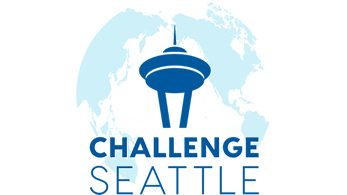
Issue
The advent of automated vehicles (AVs)—also known as driverless or self-driving cars— alters many assumptions about automotive travel. Foremost, of course, is the assumption that a vehicle requires a driver: a human occupant who controls the direction and speed of the vehicle, who is responsible for attentively monitoring the vehicle’s environment, and who is liable for most accidents involving the vehicle. By changing these and other fundamentals of transportation, AV technologies present opportunities but also challenges for policymakers across a wide range of legal and policy areas.
Spark
Municipalities like Seattle face an array of challenges when it comes to the management of autonomous vehicle technology on city and surrounding roadways. There was a need for research that helps to understand the complexities of increasing AV adoption related to:
- Traffic management and transportation planning
- Infrastructure
- Revenue & Budgeting
- Liability & Insurance
- Policy & Emergency Services
- Social Justice & Equity
Overview
To facilitate preparation for AVs at the municipal level, this whitepaper identifies the major legal and policy issues that Seattle and similar cities will need to consider in light of new AV technologies:
- There is no single “self-driving car.”
- The AV regulatory environment is still developing.
- AVs raise legal and policy issues across several domains, including challenges to transportation planning, infrastructure development, municipal budgeting, insurance, and police and emergency services.
- The adoption of AVs is likely to be a gradual and geographically uneven process.
- AV technologies and policies are likely to have significant impacts on stakeholder groups traditionally underrepresented in the policymaking process.
Innovation
Part of preparing for any new technology involves setting the city’s priorities. Selecting an overall guiding approach to AVs will enable Seattle to make consistent policy choices and to communicate those choices effectively to stakeholders. This report suggests three positions for the City to consider:
- An assertive strategy intended to promote Seattle as an AV innovation hub and to develop an overtly supportive environment for AVs that leverages local technology industries.
- A permissive and hands-free strategy intended to allow AV companies to operate in Seattle free of burdensome regulations, similar to the approach adopted in Pittsburgh.
- A cautious strategy intended to set serious limiting parameters around AVs until the technology is proven elsewhere and until Seattle determines how the technology can help address the city’s needs.
Materials
- Read the report
- Download the press release
Impact
A general AV strategy was recommended to guide the decision making processes of policymakers and initiate coalition-building with research institutions, public agencies, NGOs, and businesses throughout the region, with an eye towards developing clear and consistent policies for AVs in the Seattle area.
Media Coverage
February, 2018 | Seattle Magazine | Project: Driverless Seattle - How Cities Can Plan for Automated Vehicles
Autopilot: Is Seattle Ready for Self-Driving Cars?
March, 2017 | Kiro 7 | Project: Driverless Seattle - How Cities Can Plan for Automated Vehicles
Researchers analyzing benefits, pitfalls of self-driving cars
March, 2017 | Crosscut | Project: Driverless Seattle - How Cities Can Plan for Automated Vehicles
Robot cars: panacea or plague?
February, 2017 | Geekwire | Project: Driverless Seattle - How Cities Can Plan for Automated Vehicles
New report says increased ride sharing could solve problems when driverless vehicles hit Seattle roads
Team
The Tech Policy Lab is a unique, interdisciplinary collaboration at the University of Washington that formally bridges three units: Computer Science and Engineering, the Information School, and the School of Law. Its mission is to help policymakers, broadly defined, make wise and inclusive technology policy. This project engaged graduate students across four disciplines.
Academic Department
Faculty Leadership
Contributors
- Emily McReynolds, Program Director, Tech Policy Lab
- Matthew Bellinger
- Brooks Lindsay
- Mackenzie Olson
- Gaites Swanson
- Boyang Sa
- Feiyang Sun

